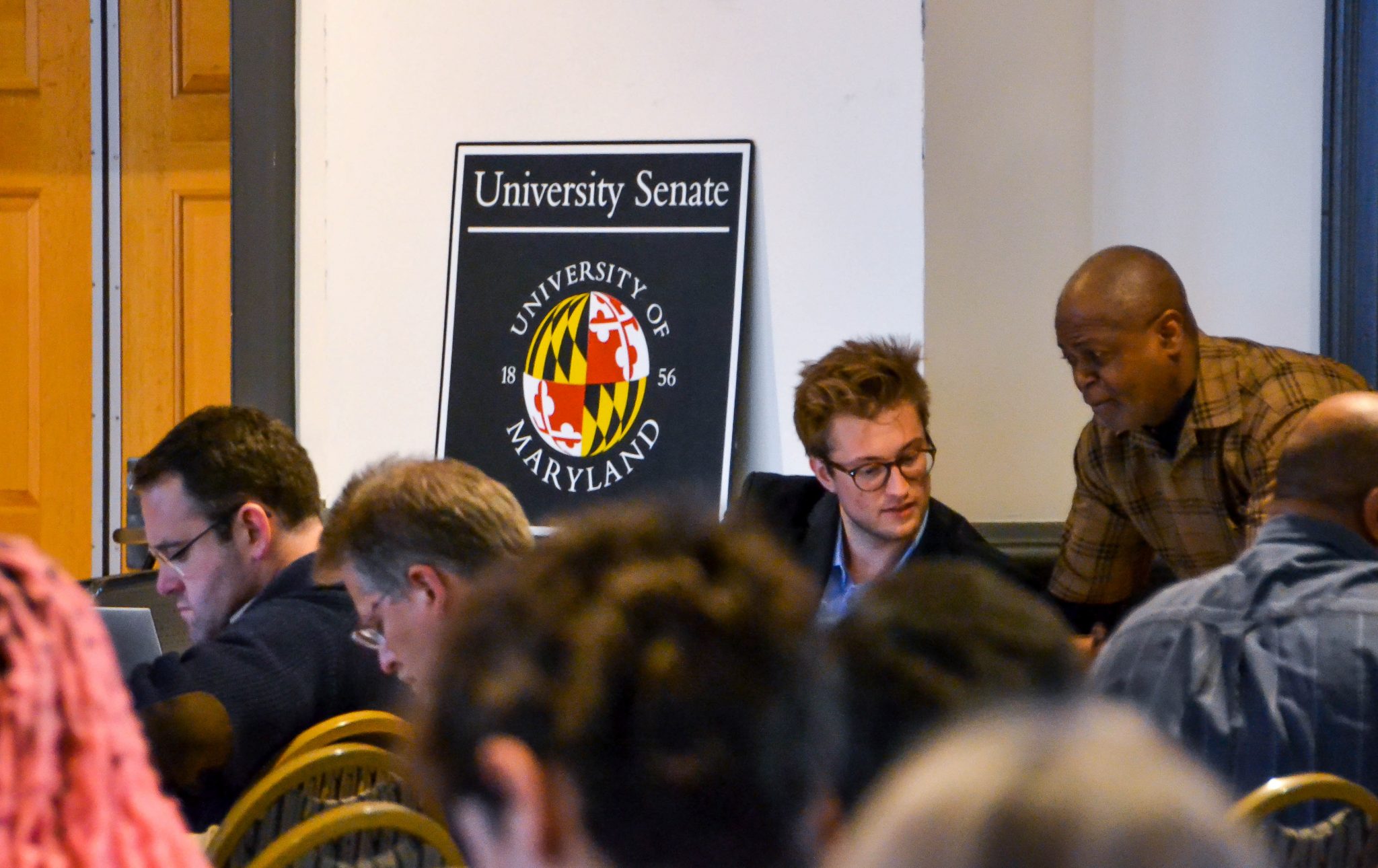The University Senate did not make a decision on a resolution in support of collective bargaining rights for graduate student workers during its meeting on Wednesday.
The senate instead voted to send the resolution to the Senate Executive Committee for further discussion.
Patrick Wohlfarth, a senator representing the behavioral and social sciences school, motioned to send the resolution back to committee for further research on the trade-offs collective bargaining rights for graduate students could have on the University of Maryland community.
The motion passed 57-36, meaning the Senate Executive Committee will now decide what committee to send the resolution to for further research.
If the resolution was approved, the senate body would have supported graduate student workers at this university in obtaining collective bargaining rights and the power to negotiate with this university.
Wohlfarth said he did not feel informed enough to cast a vote to approve the resolution Wednesday.
[Hundreds of UMD graduate students rally for collective bargaining rights]
Nick Seybert, a senator from the business school, supported Wohlfarth’s motion. Graduate students are aware of working conditions, such as pay and teaching responsibilities, when they enter their programs, Seybert said. He argued collective bargaining is not necessary unless those conditions are significantly changed by this university.
Ivy Lyons, a graduate senator in the journalism school supports the resolution, and said sending the resolution back to the committee would be an “unnecessary bureaucratic hurdle.”
“I and no other person at [this university] or any part of the [University System of Maryland] should be okay with putting graduate workers at any state in a position where they are living to their detriment,” Lyons, a member of the Graduate Labor Union, said during Wednesday’s meeting
On Nov. 20, more than 400 university community members rallied to call on this university and university system to recognize graduate workers’ right to unionize. Two days later, this university’s GSG passed a similar resolution in support of collective bargaining rights.
In a statement to The Diamondback, this university said the administration will work with GSG, the Graduate Assistant Advisory Council and other student groups to “find common ground in advancing improvements.”
The university system did not respond to a request for comment in time for publication.
[UMD GSG resolution urges university to recognize graduate students’ right to unionize]
Keegan Clements-Housser, GSG’s operations director, said GLU is advocating for voluntary recognition.
Voluntary recognition is when an employer chooses to recognize its employees’ choice to unionize based on majority support without a formal election, according to the U.S. Department of Labor.
61 percent of graduate student workers have signed union cards in support of collective bargaining rights for GLU, according to GSG representative Nora Jameson, a doctoral epidemiology and biostatistics student.
Without a legally binding union contract, GLU organizer Aryn Schriner said this university is not held accountable for fulfilling its promises to support graduate workers. They added that it would be a “powerful statement” from the senate to pass the resolution to support graduate student workers.
“I think to have the [senate] come out and explicitly say ‘yes, we are in favor of collective bargaining rights’ is one more thing that the university simply cannot deny,” the anthropology doctoral student said.



